In today’s fast-paced digital world, development tools and platforms have become crucial for businesses, developers, and engineers to build cutting-edge solutions.
As technology continues to evolve, choosing the right tools can make the difference between success and failure.
In this article, we explore the top development tools and platforms currently shaping the tech landscape.
Why Are Development Tools and Platforms So Important?
The demand for high-quality software solutions has never been higher. From mobile apps to cloud computing, development tools provide developers with the resources they need to work faster, automate tasks, and reduce the risk of errors. Platforms, on the other hand, offer scalable environments where businesses can host, manage, and deploy their applications with ease.
Below, we’ll delve into the best platforms and tools to help your projects reach their full potential.
1. GitHub – The Collaborative Powerhouse
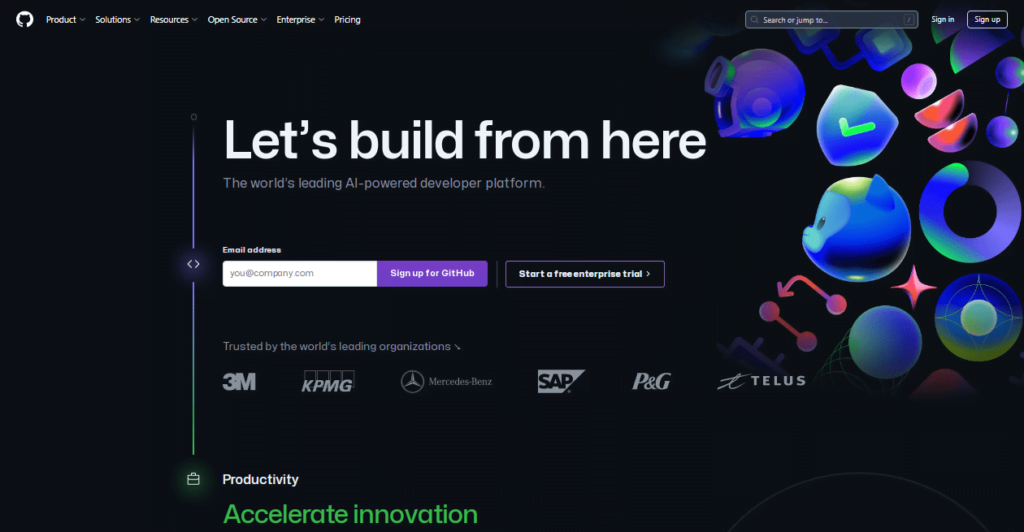
When it comes to version control, GitHub remains the go-to platform for developers worldwide. With a user base of millions, GitHub offers an unparalleled level of collaboration, making it ideal for both open-source and private projects.
Key Features:
- Code management with Git-based version control
- Team collaboration tools such as issue tracking, code reviews, and discussions
- Seamless integration with popular CI/CD pipelines
- GitHub Actions for automating software workflows
Developers appreciate GitHub’s flexibility, allowing them to integrate it with their favorite tools while providing powerful features like security advisories and code scanning to enhance project safety.
2. Visual Studio Code – The Lightweight IDE

Visual Studio Code (VS Code) has rapidly grown into one of the most widely-used code editors. It’s a lightweight, open-source editor that supports almost any programming language through extensions.
Key Features:
- Intelligent code completion using IntelliSense
- Built-in Git integration for seamless version control
- Extensibility with a vast array of plugins and extensions
- Debugging capabilities for multiple languages
- Cross-platform support on Windows, macOS, and Linux
The beauty of VS Code lies in its simplicity. Despite its lightweight nature, developers can easily transform it into a full-fledged IDE through extensions, making it perfect for both beginners and experienced coders alike.
3. Docker – Containerization for All
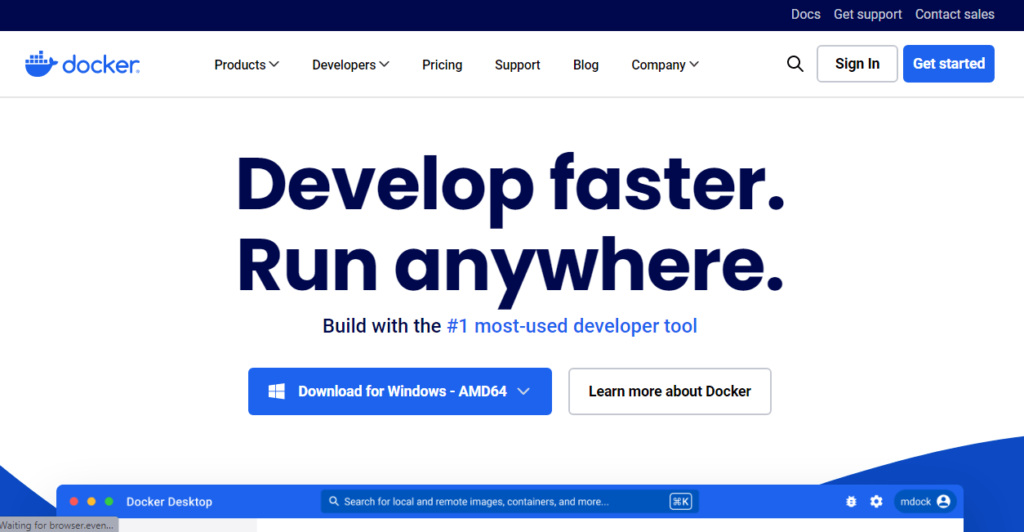
Docker revolutionized software development with its containerization technology. It allows developers to package applications and their dependencies into containers, ensuring consistent functionality across different environments.
Key Features:
- Lightweight, portable containers
- Microservices architecture support
- Cross-platform compatibility across Linux and Windows
- Docker Hub for sharing and storing containers
Using Docker helps developers eliminate the “it works on my machine” problem by providing a consistent development environment. It’s an essential tool for any DevOps or cloud-native application development project.
4. Kubernetes – The Leader in Orchestration
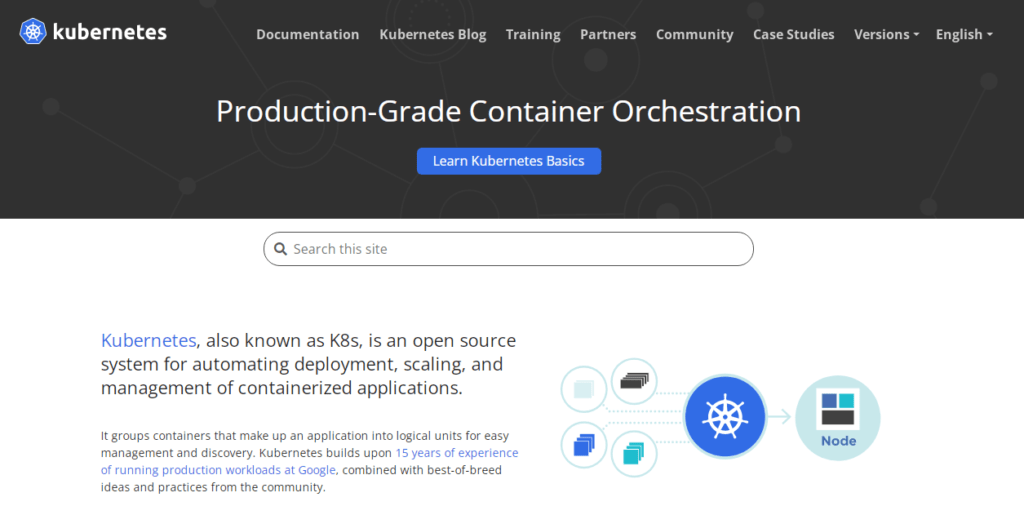
While Docker excels at containerization, Kubernetes dominates in container orchestration. This open-source platform automates the deployment, scaling, and management of containerized applications, making it indispensable for businesses looking to scale their applications efficiently.
Key Features:
- Automated scaling and deployment of containers
- Self-healing capabilities to ensure high availability
- Seamless integration with cloud services such as AWS, Google Cloud, and Azure
- Cluster management with high resilience and fault tolerance
For enterprises with complex applications, Kubernetes provides the infrastructure needed to keep applications running smoothly, even at scale.
5. AWS (Amazon Web Services) – The Cloud Giant
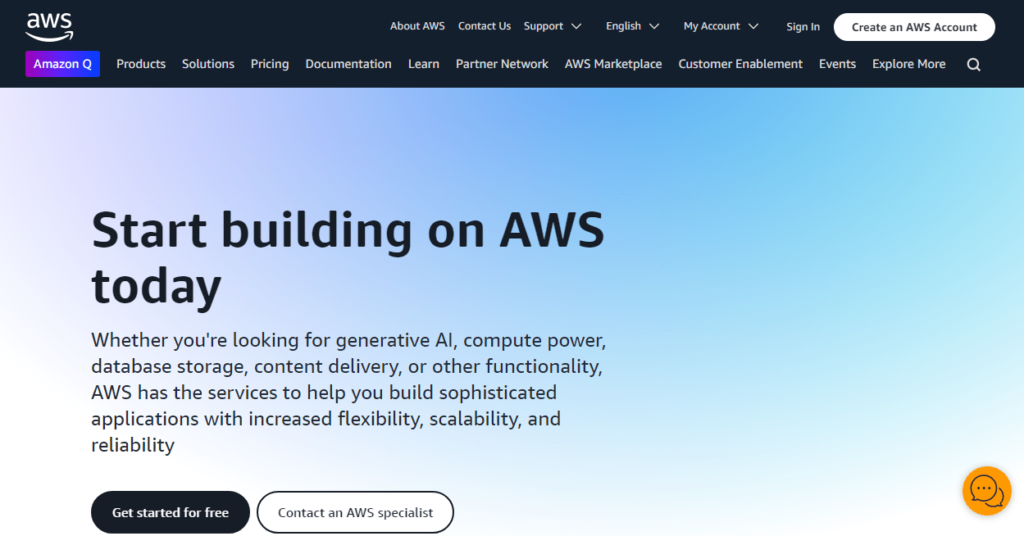
Amazon Web Services (AWS) continues to dominate the cloud computing market with its vast array of services. From virtual servers to database solutions, AWS offers a highly scalable and secure environment for building and deploying applications.
Key Features:
- Scalability with tools like EC2 and Elastic Load Balancer
- Comprehensive services such as S3 for storage, RDS for managed databases, and Lambda for serverless computing
- Global infrastructure with low-latency network connections
- Built-in security and compliance tools
AWS empowers businesses to build complex, highly-available architectures with ease, all while benefiting from its expansive infrastructure and pay-as-you-go pricing model.
6. Azure DevOps – Continuous Integration and Deployment

Microsoft’s Azure DevOps suite is designed for teams looking to streamline their CI/CD pipelines. It integrates seamlessly with Azure cloud services but is also highly versatile, working with other cloud providers and even on-premise solutions.
Key Features:
- CI/CD pipeline automation with Azure Pipelines
- Version control using Azure Repos
- Agile project management with Azure Boards
- End-to-end monitoring with Azure Monitor
Azure DevOps is an excellent choice for organizations already invested in the Microsoft ecosystem or those looking to adopt a flexible, scalable development pipeline.
7. Google Cloud Platform – The Innovator

Google Cloud Platform (GCP) may not be as widely adopted as AWS, but it’s rapidly gaining ground thanks to its focus on innovation. From machine learning to big data, GCP provides a robust set of tools for businesses that want to push the boundaries of technology.
Key Features:
- AI and Machine Learning services such as TensorFlow and AutoML
- Powerful data analytics tools including BigQuery and Dataflow
- High-performance computing services
- Strong integration with Kubernetes for container orchestration
GCP is particularly strong in areas like AI, data analytics, and high-performance computing, making it a favorite for companies exploring next-gen technologies.
8. Jenkins – Automating DevOps
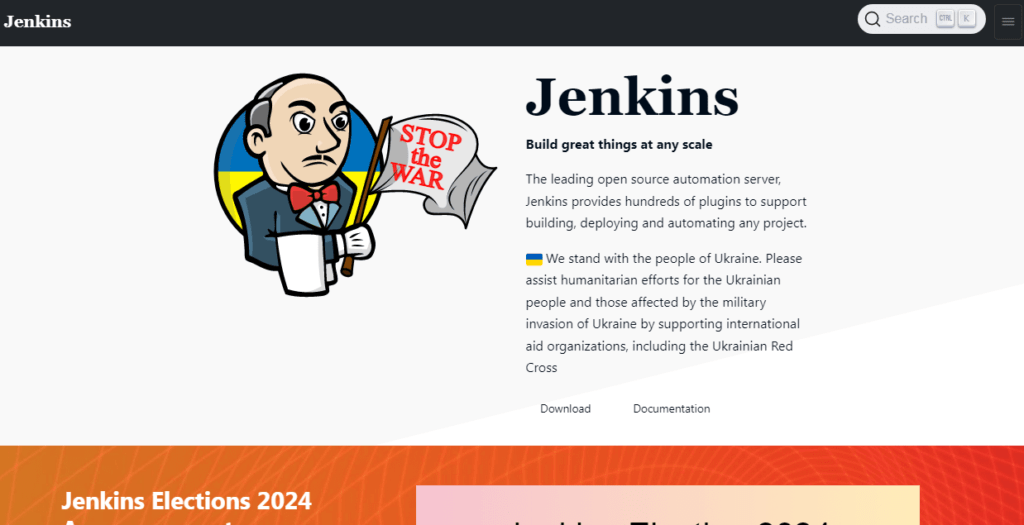
In the world of DevOps, Jenkins is a key player for automation. This open-source automation server helps with continuous integration and continuous delivery, allowing teams to build, test, and deploy code faster and more reliably.
Key Features:
- Plugin-rich ecosystem for extended functionality
- Seamless integration with GitHub, Docker, and AWS
- Extensive support for pipeline as code
- Ability to automate testing, building, and deployment tasks
Jenkins’ flexibility and vast plugin library make it a powerful tool for teams of all sizes looking to adopt continuous delivery and automation practices.
9. Slack – Communication and Collaboration

Although not a development platform per se, Slack is an essential tool for improving team collaboration, particularly in remote work settings. With its real-time messaging, file sharing, and integration with other development tools, Slack enhances team productivity.
Key Features:
- Real-time communication channels
- Integration with GitHub, Jenkins, and more
- Advanced file sharing and collaboration features
- Custom bots for automating notifications and updates
By keeping all communication and documentation in one place, Slack streamlines workflows and ensures teams stay in sync throughout the development lifecycle.
Conclusion
- In the rapidly changing tech landscape, choosing the right development tools and platforms is essential for success.
- Whether you’re a solo developer working on a passion project or a large enterprise looking to streamline your workflow.
- The tools listed above provide the foundation for modern, scalable development.
- Adopting these solutions can help you stay competitive and deliver high-quality products faster.


2 thoughts on “Master Top Development Tools and Platforms Today!”